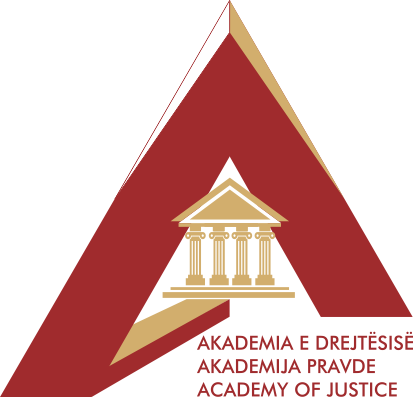
 ACADEMYOF JUSTICE
ACADEMYOF JUSTICE
May 16 2019, Academy of Justice organized the two-days training on Allowing enforcement and decision on objection, within its continuous training program. Purpose of this training was to extend the judges knowledge on review of the enforcement proposal and decisions that are taken in the stage of the objection review.
First part of the training elaborated on the following: titles of enforcement – enforcement document and reliable document and conditions to allow enforcement. Whereas second part elaborated on competence to decide about objection and causes for objection, as well as court decisions related to this.
Beginning of the training emphasized that Law on Enforcement Procedure regulates the procedure through which the courts and private enforcement officials determine and implement enforcement based on enforcement documents and reliable documents, except is a particular law says otherwise.
It was further elaborated on the fact the Law on Enforcement procedure foresees objection as legal remedy by which parties may attack decision of the enforcement body that allows enforcement. Implementation of the enforcement procedure by private enforcement officers has the advantage of removing the responsibility of managing the enforcement process by judges and the court enforcement officials, which usually consumes a great deal of their time.
It was emphasized that great delays in enforcement of civil judgments in Kosovo courts severely damage the correct and duly trial, which in general hinders the rule of law. In this context, European Commission in the Progress Report for 2019 says that “unenforced judgments have damaged the public trust to capacity, professionalism, and accuracy of the judiciary, limiting this way the effective access to justice.
Also, it was emphasized that private system of enforcement has also the advantage of removing the responsibility of the enforcement process management from judges and court enforcement agents. These responsibilities pass to private enforcement agents, but role of courts remains very important because more sensitive issues, like family cases remain under the courts exclusive competence; also, legal remedies remain under the court’s competence, and another important functions is supervision, because parties that consider that private enforcement agent has violated their rights may address to the court. Therefore, it was emphasized that enforcement systems carried out by private enforcement agents have become a practice in largest part of the western Europe, and in former socialist countries, as well is South and Eastern Europe.
This training used combined methods of teaching, using theoretical lectures based in cases from the judicial practice, followed by exercises, interactive discussions, handouts, and analysis of case studies, that elaborated on legal provisions that regulate this area.
Beneficiaries of this training were basic court judges, Appeals Court judges, professional associates and private enforcement officials.
16-05-2019